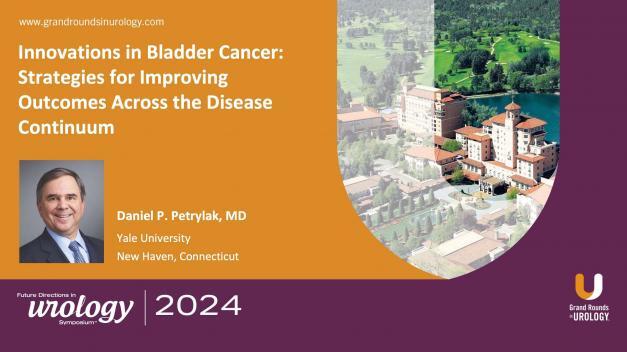Innovations in Bladder Cancer: Strategies for Improving Outcomes Across the Disease Continuum
Daniel P. Petrylak, MD, discusses recent advancements in bladder cancer management, highlighting the evolving treatment landscape and the integration of novel therapies. In this 10-minute talk, Petrylak notes a paradigm shift in treating metastatic bladder cancer, moving beyond traditional platinum-based chemotherapies such as gemcitabine and cisplatin, toward immune checkpoint inhibitors.
Petrylak shares trials exploring new therapeutic strategies, such as integrating agents into neoadjuvant and adjuvant settings. For patients ineligible for platinum-based chemotherapy, new protocols involving EV and pembrolizumab provide promising alternatives.
The presentation emphasizes future research’s importance in optimizing treatment sequencing, improving bladder preservation, and minimizing toxicity. With survival rates for metastatic bladder cancer doubling in recent years, ongoing trials are expected to further refine therapeutic strategies and define the next era of bladder cancer care.
Read More




